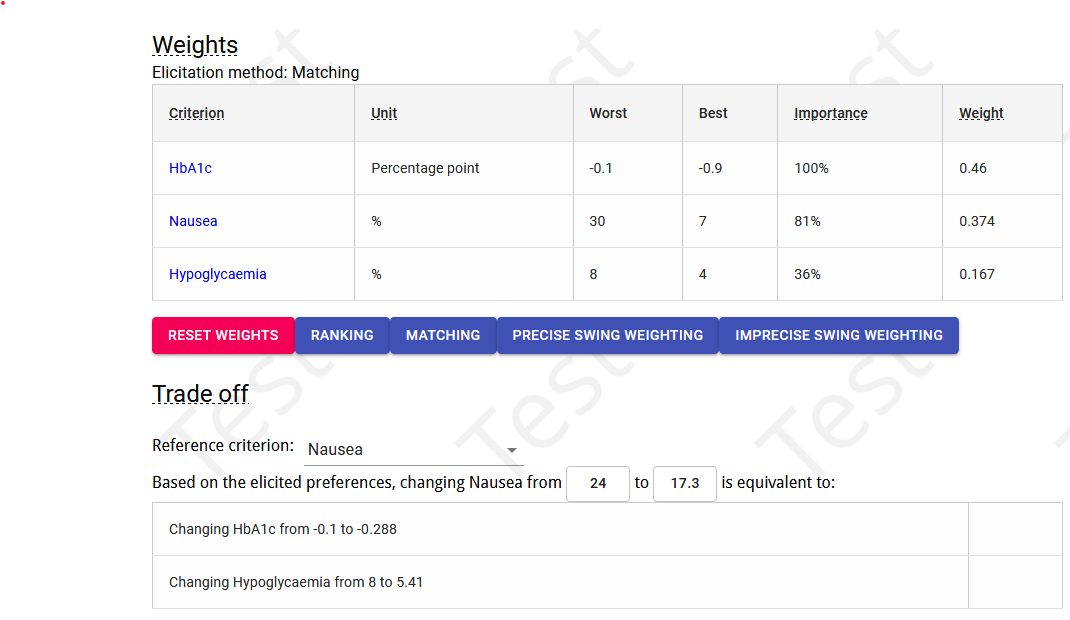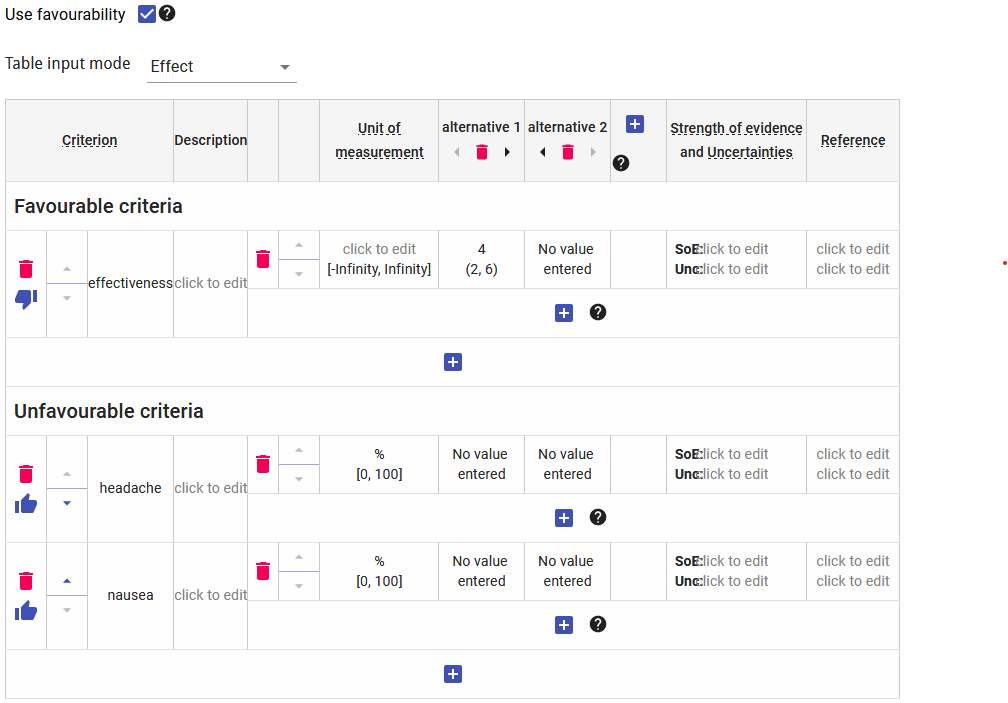05 Mar 2021 — Daan Reid
The ADDIS team is proud to anounce a new release of ADDIS MCDA. Besides improvements to stability and performance, as well as our ongoing transition from the outdated AngularJS framework, this release includes the following features in both the open version and the Enterprise version:
Further, ADDIS MCDA Enterprise has been extended with the following features:
- Group management: Users can now be added to groups. By default, a user can only see and share analyses with other users that are in the same group as them. Users can be members of multiple groups.
- Threshold technique elicitation: This method of preference elicitation asks users to determine the relative importance of criteria by presenting them with a change in one criterion, and then letting them adjust the size of the change in another criterion until the two changes are worth approximately as much. This method was recently used by the FDA in their assessment of Brilique (Ticagrelor).
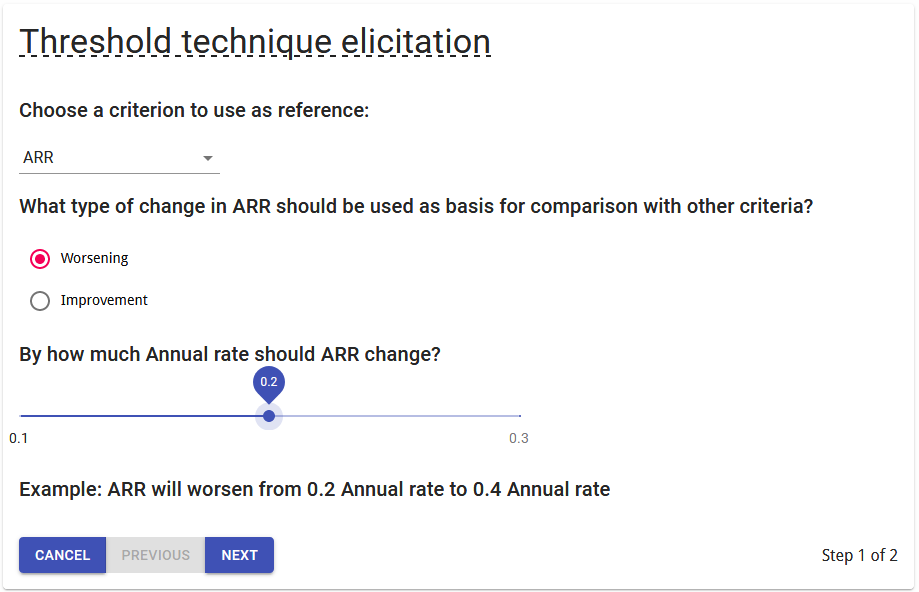
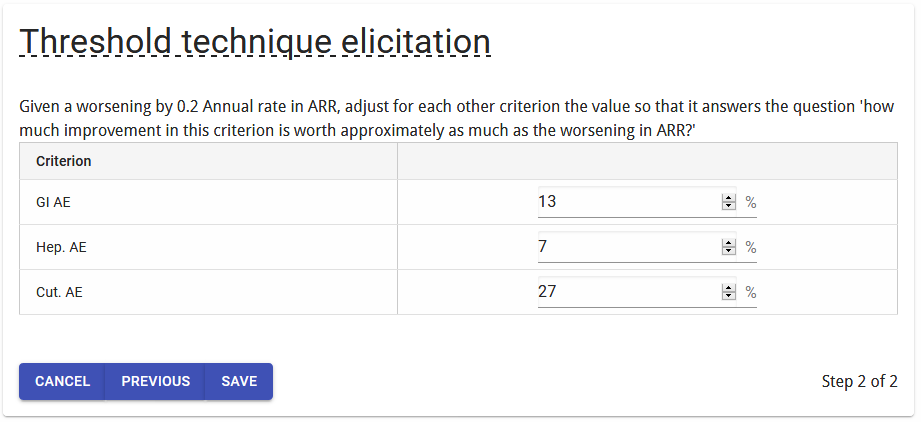
15 Nov 2020 — Daan Reid
Both ADDIS MCDA Enterprise and its Survey Tool have been extended with a new method of preference elicitation, namely Choice-based Matching. This method asks the respondent a series of questions aimed at narrowing down their preference constraints. For more information about this method, please see see the following references:
- Postmus, D., Richard, S., Bere, N., van Valkenhoef, G., Galinsky, J., Low, E., … Pignatti, F. (2018). Individual Trade‐Offs Between Possible Benefits and Risks of Cancer Treatments: Results from a Stated Preference Study with Patients with Multiple Myeloma. The Oncologist, 23(1), 44–51.
- Postmus, D., Mavris, M., Hillege, H. L., Salmonson, T., Ryll, B., Plate, A., … Pignatti, F. (2016). Incorporating patient preferences into drug development and regulatory decision making: Results from a quantitative pilot study with cancer patients, carers, and regulators. Clinical Pharmacology & Therapeutics, 99(5), 548–554..
30 Oct 2020 — Daan Reid
We are proud to announce the addition of a tool to the ADDIS suite: the ADDIS MCDA Survey Tool. It is now possible in the enterprise version of ADDIS MCDA to create and configure surveys for problems. Configuration choices include the partial value functions, the preference elicitation method and the texts shown to the surveyees. Once published, a link is created which can be sent to surveyees. Their responses are then made available for SMA analysis in ADDIS MCDA. For access to a testing version of ADDIS MCDA Enterprise, please /contact us.

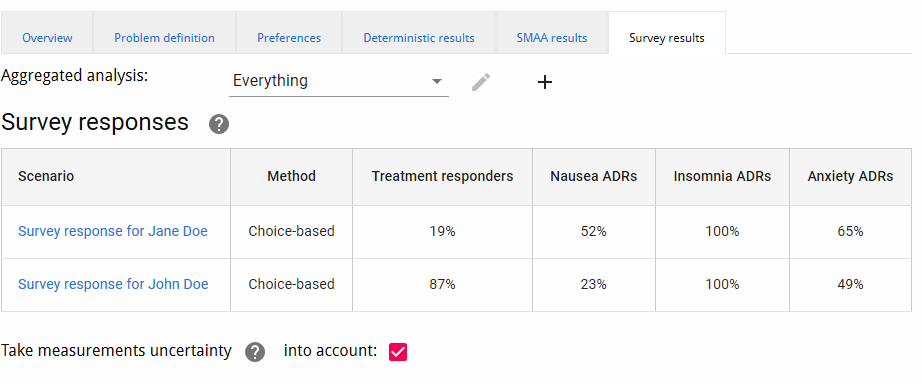
27 May 2020 — Daan Reid
Daan was invited to present a talk at the technical forum of https://www.nice.org.uk/ to demonstrate the ADDIS software suite. Originally planned to be held in-person, it was postponed and held virtually due to COVID-19. The talk was titled ‘Efficient and transparent decision support using ADDIS software’ and covered all aspects of integrated ADDIS, from clinical trials data management to benefit-risk analysis. The talk was well-received.
01 May 2020 — Daan Reid
As has been known for some time, Google is ending support for its AngularJS framework, in which the user interfaces of our applications are built. The team took some time and re-implemented test slices of old parts of the application to test several alternative frameworks (React, Angular, VueJS, Elm), and ended up choosing React as the preferred option to replace AngularJS. Leading concerns were likelihood of the framework being supported in the future, large plugin and developer community and the comparative simplicity and clarity of its data flow model. A copy of our analysis of the frameworks is available upon request.
